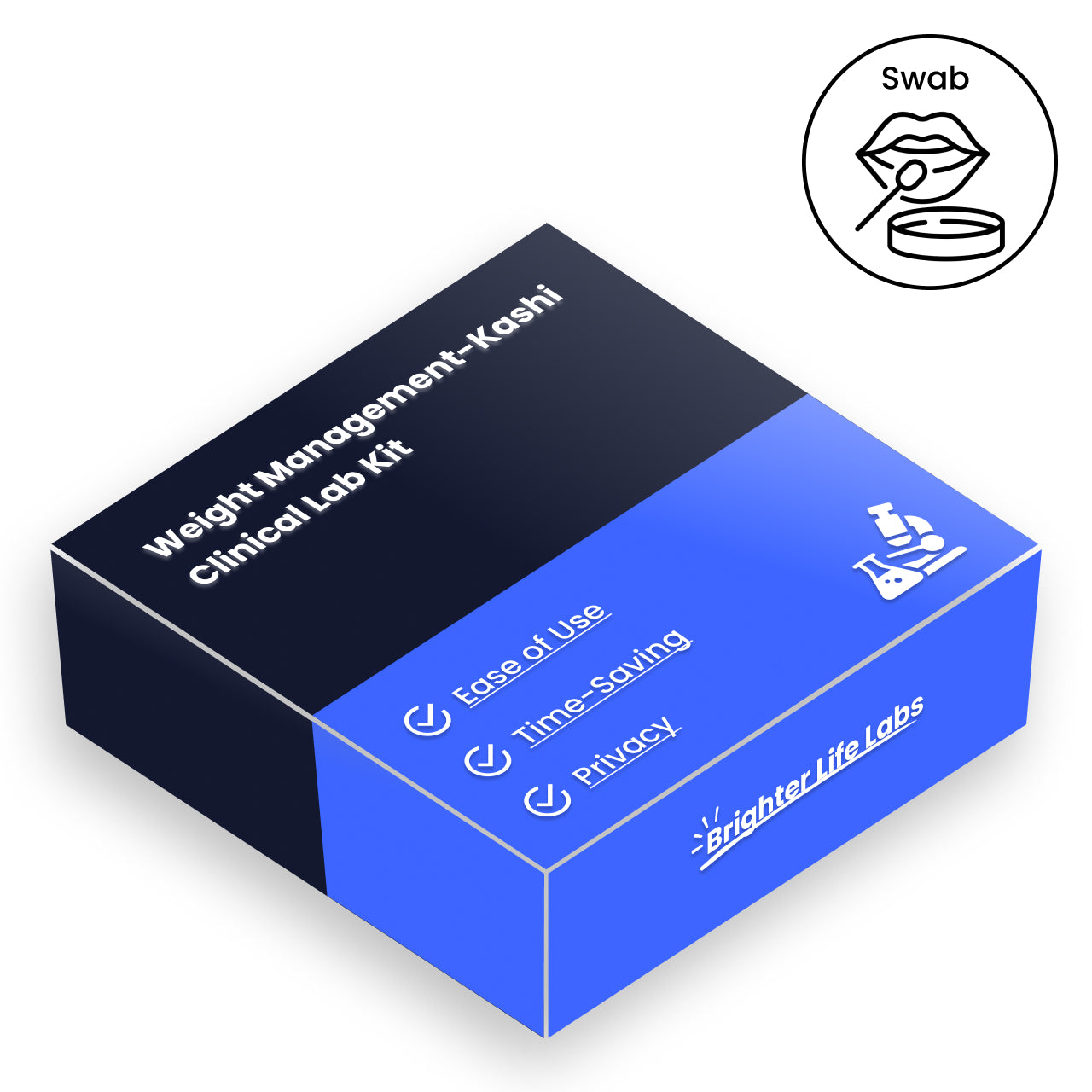1
/
of
1
Kashi Clinical lab
Weight Management-Kashi Clinical Lab Kit
Weight Management-Kashi Clinical Lab Kit
Regular price
$165.00 USD
Regular price
Sale price
$165.00 USD
Unit price
/
per
Shipping calculated at checkout.
Couldn't load pickup availability
Note: This is a test kit that will be mailed to you for an at home collection
Fasting Required:
No
Lab:
Kashi Clinical Laboratories, Inc.
Specimen:
Buccal Swab
Results:
Average processing time 5-7 business days
Note: Result turnaround times are an estimate and are not guaranteed. Our reference lab may need additional time due to weather, holidays, confirmation/repeat testing, or equipment maintenance.
Description:
The genes chosen for the panel are based on identification of SNPs (single nucleotide polymorphisms) that have been shown to correlate with weight gain and obesity.
Included:
FTO mutation – A variant of the human fat mass and obesity associated (FTO) gene, which was first discovered in 2007, is one of the strongest genetic risk factors for obesity. The pivotal Frayling et al. 2007 study found an additive association between BMI and the FTO risk allele in 38,759 participants. It was determined that adults who were homozygous for the risk allele weighed an average of 3 kilograms more and had a 1.7-fold increased risk of developing obesity when compared with those not carrying a risk allele.2 The association between the FTO risk allele and obesity has also been confirmed in multiple populations of differing ethnicities. MC4R mutation – The Melanocortin 4 receptor (MC4R) is a g protein-coupled receptor that is highly expressed in the hypothalamus. Upon stimulation by melanocortin hormones, MC4R acts on hypothalamic effector nuclei to trigger neural pathways that ultimately lead to the suppression of nutrient intake and the enhancement of metabolism. Carriers of this variant allele are more likely to have difficulty suppressing their appetite and limiting excessive snacking behavior. The body of literature regarding this gene variant leaves little room for doubt that carriers of the MC4R variant allele are more likely to develop obesity FABP2 mutation – Fatty Acid Binding Protein 2 (FABP2) is an intracellular protein found within cells of the small intestine, which aids in fat trafficking and absorption. The risk allele causes its binding affinity for both long-chain saturated and unsaturated fatty acids to increase by two-fold.7 Clinical studies examining the effects of this SNP in subjects consuming a diet high in saturated fat found that carriers of the risk allele had increased fasting plasma glucose and lipid concentrations when compared to non-carriers.8 This hyperlipidemia could consequently impair the rate of insulin-stimulated glucose uptake by cells, thereby increasing fasting insulin concentrations and the likelihood of developing insulin resistance. Increased absorption of dietary fatty acids due to this variation is a potential contributor to the development of obesity and obesity-related ailments such as cardiovascular disease and diabetes. ADRB2 mutation – Beta adrenergic receptors are trans-membrane proteins that are activated by catecholamine hormones to direct the physiological response to stress. A growing body of research suggests that mutations in the genes that code for these receptors may be important risk factors for the development of obesity, and may affect how an individual’s weight changes in response to exercise or a carbohydrate rich diet. SH2B1 mutation – The SH2B adapter protein 1 (SH2B1) has been identified as a positive regulator of insulin, IGF–1 and leptin action. It is well known that insulin’s primary role is to regulate glucose and lipid metabolism. SH2B1 deletion results in marked insulin and leptin resistance, obesity, and type 2 diabetes in mice as well as humans, indicating that SH2B1 is required for the maintenance of normal body weight, insulin sensitivity, and glucose metabolism.13 In addition, it has been consistently demonstrated that SNPs in the SH2B1 gene are associated with obesity and/or BMI. The association of increased BMI with SH2B1 risk alleles has been robustly replicated in several large studies of individuals of various ethnicities.
Share


